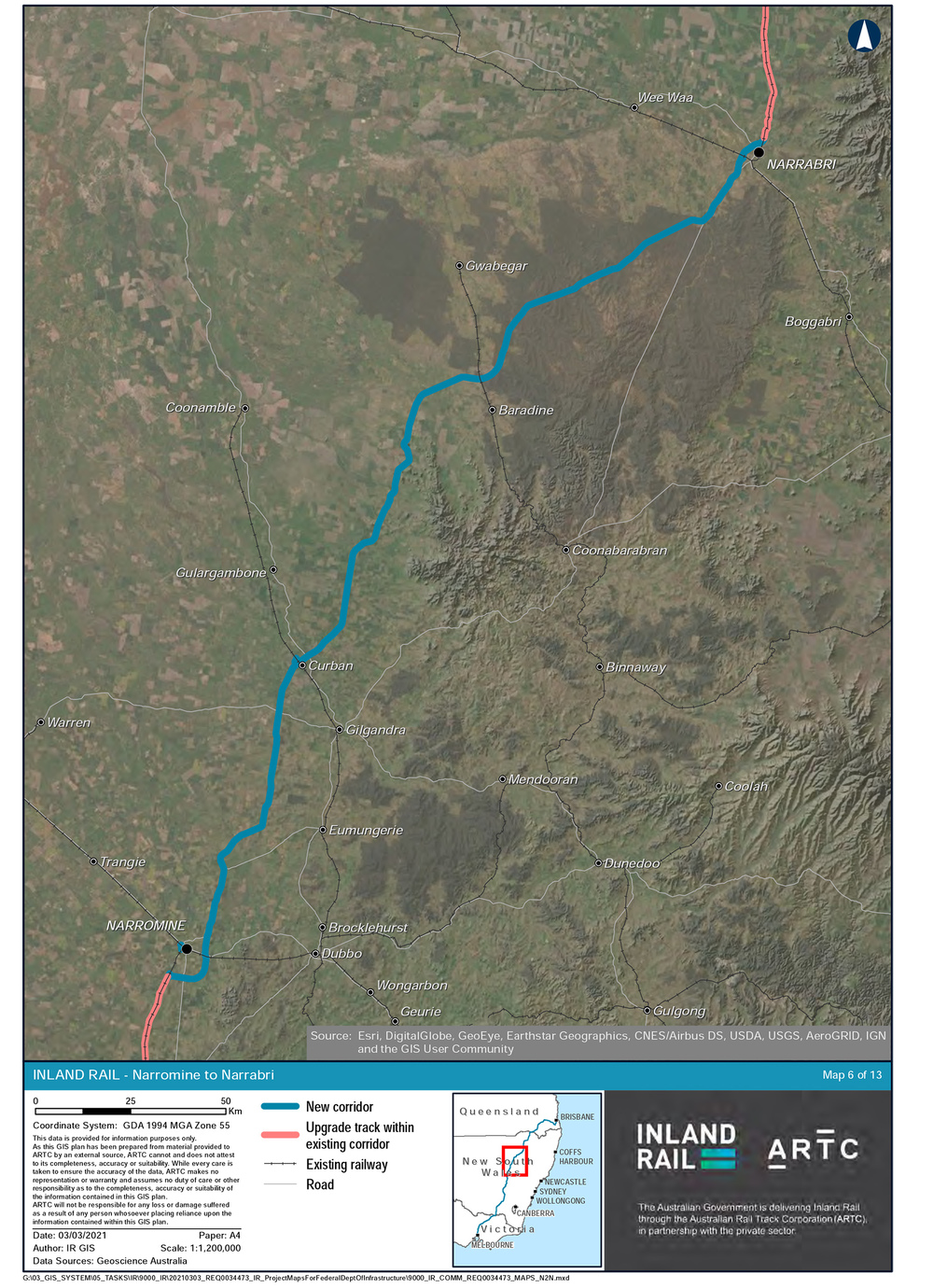NSW gives go-ahead for greenfield section of Inland Rail
Lee O'Connor
27 February 2023, 6:40 AM

THE NSW Government has given the green light to the Narromine to Narrabri (N2N) greenfield section of the Inland Rail project which covers around 307 kilometres across four western plains shires.
On Friday 24 February the Australian Rail Track Corporation (ARTC) announced that they had received approval from the NSW Minister for Planning to progress the N2N project, subject to conditions and Australian Government approval.
The final step of federal approval for the 300-kilometre greenfield section is expected to take just a few weeks.
"The Commonwealth Department of Climate Change, Energy, Environment and Water (DCCEEW) has determined the Narromine to Narrabri project to be a controlled action under the Environment Protection and Biodiversity Conservation (EPBC) Act 1999," said Richard Hamilton, Acting Delivery Director Southern, in a letter to local stakeholders.
"Now that State approval has been received, the Project will be determined by the DCCEWW under an accredited assessment process. A decision is expected in the next month."
For local landholders whose properties or operations will be impacted by the line, there may be some consolation in news from the NSW Farmers Association that their mediated meetings with ARTC have yielded some positive results.
"NSWFA have always supported getting the Inland Rail up and running but we have finally reached agreement on the processes of landholder interaction," said Peter Wilson, Chairman of the NSWFA Inland Rail Taskforce.
Mr Wilson says that the commitment to engage a mediator came as a result of an earlier Senate Inquiry into the Inland Rail, which found fault with some of ARTC's consultation and landholder engagement processes.
"Mediation has worked very well," Mr Wilson said. "It will be a public document which includes clear protocols, fencing standards and guidelines for how landholders are supposed to be treated and procedures to follow if they're not treated that way."
"We are finally getting what our members have been asking for in a document they'll sign off on," he said.
"It's a step forward and the proof will be in the pudding but I'm reasonably confident there'll be improvements. These documents are something that can hold ARTC to account."
"The only other body still to review it is Transport for NSW," Mr Wilson said. "That's the last step in this process."
The documents from the mediation are expected to be publicly released on 10 March.

IMAGE: ARTC
Meanwhile, the N2N proposal is not expected to be with the federal Minister for long with the new government having made their commitment to the project clear.
However, there is still the matter of the Albanese Government's own Independent Inquiry into the Inland Rail.
Submissions have closed and the report from the panel headed by Dr Kerry Schott has apparently been finalised but the results are not expected to be made public until the Government has formulated their response.
"We invited Dr Schott and the panel to come and look at the greenfield section but they politely declined," Mr Wilson said. "We suspect there won't be a lot come out of that."
It is expected that the final results will not be released until the Federal Government has already signed off on the N2N project and is unlikely to include any change to the alignment.
Work is expected to get underway quickly.
"Over the coming months, ARTC will continue to work with the preferred civil works construction contractor, ACACPB JV, to develop the Project's detailed design and secondary approvals documentation (environmental and social management plans, permits and licenses) and conduct low impact works such as service utility relocations and site investigations, including geotechnical surveys to better understand ground conditions," said ARTC's Richard Hamilton.
"We remain committed to working with the community to ensure the best outcome for the region."




